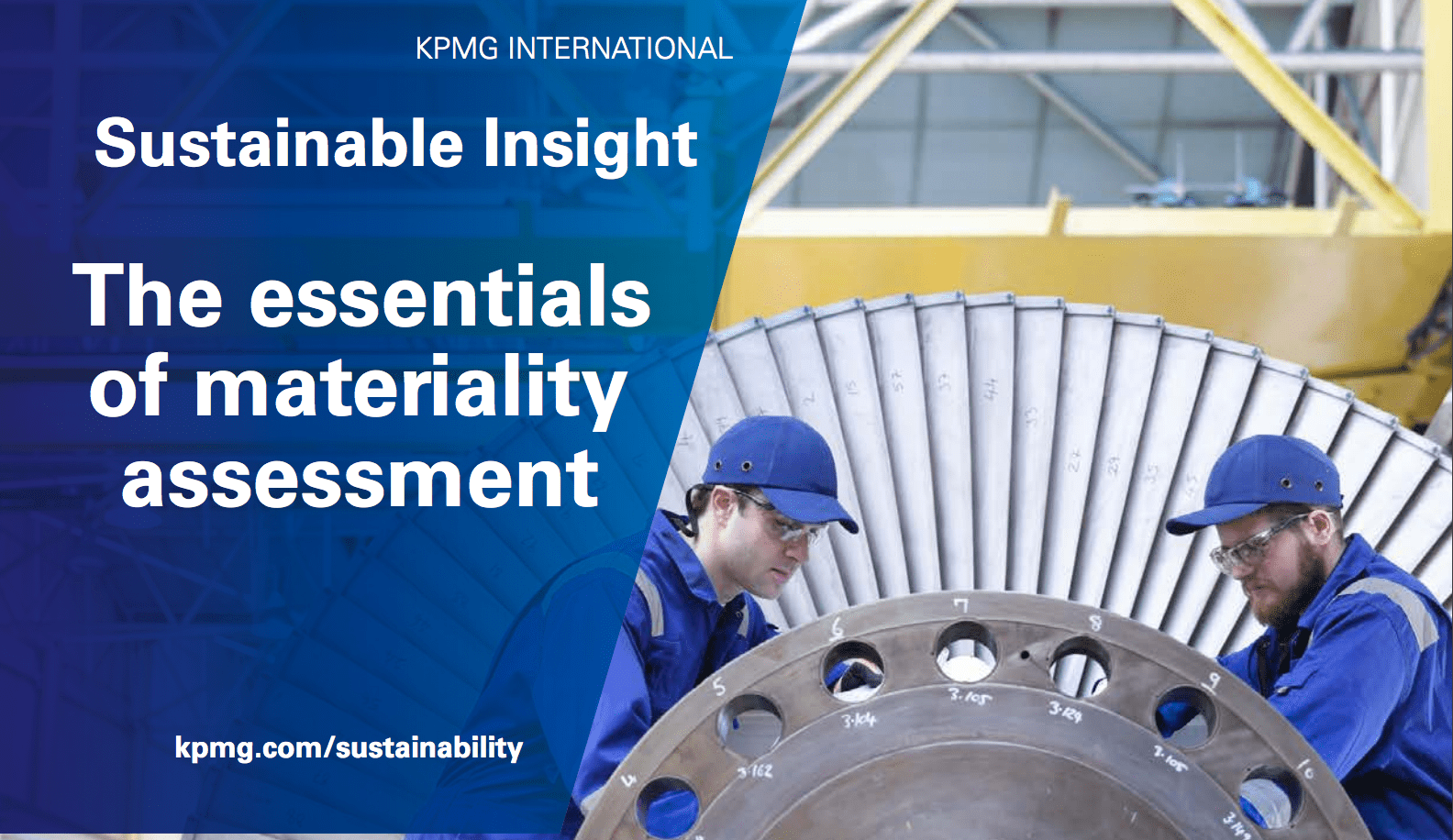Materiality is the principle of defining the social and environmental topics that matter most to your business and your stakeholders. Some 80 percent of the world’s largest 250 companies already identify material sustainability issues in their reporting.1 Yet the process of identifying material issues is a challenge that clients of KPMG member firms are increasingly seeking our professional guidance on.
This is primarily due to the growing focus on materiality in reporting frameworks and accounting standards, such as the Global Reporting Initiative’s (GRI) G4 guidelines, the International Integrated Reporting Framework and the Sustainability Accounting Standards Board (SASB) in the US.
In addition, new regulation – such as the European Directive on non-financial reporting2- and increasing stock exchange requirements to report environmental, social and governance (ESG) risks3 are leading companies to consider what non-financial information matters and what they should report.
As a result, many companies are looking to revise and update their materiality assessment processes. While many large companies understand the principles of materiality, some struggle to define and implement a robust process. This is reflected in the fact that of the 250 largest companies in the world (by revenue) that define material topics in their sustainability report, 41 percent do not explain the process used and less than half (45 percent) clearly explain how stakeholder input is used to identify material topics.
Common challenges with the materiality process include: incorporating and prioritizing stakeholder views, involving senior management, and extending the materiality assessment beyond the company’s own operations, across the value chain.
We believe that in many companies the sustainability materiality process can be significantly improved, better aligned with wider business processes and reported with more clarity.
This paper aims to help companies by providing guidance on the materiality assessment process in the light of recent developments in reporting requirements and advice on overcoming common challenges. We set out the key steps companies need to take to establish a robust process and provide solutions to common challenges.
The paper is written primarily for sustainability professionals, risk managers and those involved in corporate reporting.
We believe that the companies which fully consider how sustainability topics interrelate with their business strategy, and develop sustainability materiality processes that link with the wider enterprise risk management process, will be in a better position to inform investors, regulators and other stakeholders on their environmental, social and governance impacts, risks and opportunities.
Download the report here.













